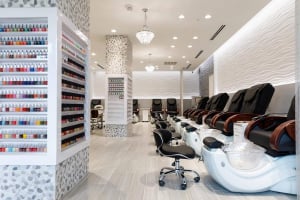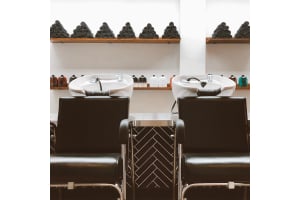Choosing The Right Business Structure For Your Salon Suite

Starting your own salon suite can be an exhilarating yet challenging journey, and choosing the right business structure is a critical first step. For many aspiring beauty pros, this step could lead you to success or failure. It's a huge decision that can have a big impact on your business, including how much tax you pay, your risk exposure, and even your ability to get a business loan. No matter how savvy a business owner you might be, the wrong structure choice can shut your startup down fast. In this article, we'll provide a comprehensive guide to help you figure out which structure works best for you!
Limited Liability Company (LLC)
This is the most popular business structure among salon suite owners. It gains its popularity through the ease of setting it up and the protection it offers to the owner. LLCs protect you from personal responsibility for debts and liabilities within the business. LLCs can be set up as single members, or partnerships, or even be taxed as an S-corp. Setting up an LLC is very simple in most states by filing articles of organization. This just means that you are letting the state know who is responsible for what within your business. Some states even offer the option to fill this out online. Additionally, you will need to obtain an employer identification number (EIN) so that the IRS can identify your business for reporting taxes. This number essentially acts as your business’s social security number. It is totally free to obtain your EIN and the IRS will usually issue one to you immediately.
Typically, salon suite owners are drawn to this business structure because of the protection it offers for the owner's personal assets. The downside is that LLC owners may pay more taxes. You are subject to self-employment tax since you are set up as a pass-through entity. This just means that the business does not pay corporate income taxes. The owners of the LLC collect the business proceeds as income and then pay personal income taxes on that amount. This is a benefit in itself because you can avoid the double taxation of being a corporation.
Sole Proprietorship
A sole proprietorship is the simplest form of business structure, where an individual owns and operates the business and pays personal income tax on profits earned from the business. This allows you to do business under your own name since creating a separate business name isn’t necessary. This is very popular among salon suite owners since in most cases it is just operated by the owner. You do have the option to start as a sole proprietorship and expand to a different structure if your business grows.
One of the greatest advantages of a sole proprietorship is the tax benefits. Your income is only subject to a single layer of income tax. You also don’t need an EIN (employer identification number) and can use your own social security number. It is also extremely easy to set up with minimal paperwork which helps you get off the ground quicker. In some states, you will just need to obtain a license or permit. Additionally, you don’t need a business checking account like other business structures. You can conduct all your finances through your personal account.
There are some disadvantages when operating as a sole proprietorship. The main one is that you will have no liability protection. So, any debt that your business accrues will also be your personal debt. Similarly, if an accident happens in your salon suite and someone gets hurt, the client can sue you personally. Another downside is how financial institutions perceive sole proprietorships. This business structure is considered high-risk, so many banks and creditors won’t grant bank loans or lines of credit.
Partnership
A partnership is exactly what it sounds like! It's just a formal arrangement by two or more parties to operate a business. All partners of the business share profits and liabilities equally. There are a few different ways to structure this such as having all parties contribute equally or having the “silent partner” where that party is not involved in the day-to-day operations of the business.
If you choose this business structure, you do not pay income tax. The tax responsibility passes through to the partners. This is a much more favorable tax treatment than if you set your business up as a corporation.
The good thing about choosing a partnership is that it allows the partners to combine their resources and time. The start-up can go much smoother if you have extra manpower. However, there are some downsides to this structure. Much like sole proprietorship, partners are personally held responsible for debts and accidents incurred within the business. If you choose this business structure, we suggest being very selective with whom you choose. Another thing to consider is that partnerships have no liability protection. This puts you and your partner personally at risk for any debt or lawsuits that your business may incur.
Corporation
As a salon suite owner, this is probably not the best business structure for your business unless you plan to expand exponentially and eventually sell your suite. A corporation is a legal entity that is completely separate from its owners and possesses the same rights as individuals. Corporations can borrow money, be sued, hire employees, and pay taxes. This business structure is also subject to double taxation. As a corporation, you typically have a board of directors and shareholders that execute the business plan. It is a very complex business structure to set up at a smaller level like a salon suite.
The best thing to do before deciding on any of these options is to do extensive research and hire an accountant for advice. Buy-Rite Beauty is not a C.P.A. and does not offer legal advice. We are here to offer advice to bring your dream salon suite to life at every step of the way.







